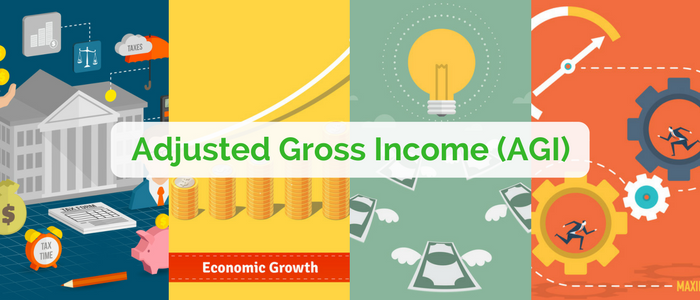What is Adjusted Gross Income (AGI)
Most of us have come across the term Adjusted Gross Income or AGI and know that it has got something to do with taxes. But what is it exactly and how it impacts your financial life is what we are going to look into today. The simplest definition of AGI is that it is a number that the IRS look at closely so as to determine your tax liabilities.
Behind the Scenes
AGI or Adjusted Gross Income is calculated after adding up all of your verified and qualified income and then detracting all the deductions from the same. Thus, a lower AGI is what one must aim for, as it lets you benefit from lower tax bills along with the ability to qualify for tax benefits. Now that we know it can help us reduce the taxes, how is it exactly calculated?
- You should start off with determining your Gross income. Essentially, the total amount of money that you pocketed during a specific year.
- It usually includes salary, wage, rent from property, capital gains, any form of royalties, social security benefits that are taxable.
- You need to deduct various contributions from it and thus you achieve on the AGI.
- Deductions or contributions such as contribution towards retirement, interest amount paid for education loans, educator expenses incurred some of the medical expenses, health insurance premiums etc. qualify for this.
Should you be bothered?
Adjusted Gross Income is one of the most critical values when it comes to taxes for a particular financial year. You might have come across the term net income, which is nothing but a synonym for adjusted gross income. Why so? Well, because it is the net amount on which all the taxes are calculated, once the income and deductions are looked after. This is one of the main reasons behind the adjusted gross income being featured in the first page of Form 1040 and Form 1040A as provided by theIRS. Another term that comes into the foray of discussion is Modified Adjusted Gross Income or MAGI. MAGI adds a few of the deduction types back and helps the IRS determine your eligibility for some the initiatives. Here is why you should have a faint grasp of both.
- Understanding the MAGI helps you figure out if or not you qualify for the Roth IRA contributions. If your income crosses a certain limit, then you cannot invest in Roth IRA.
- Certain contributions such as HSA or funds towards 401(k) at work place will help you reduce your MAGI and thus make you eligible for some of the tax benefits.
- Another example would be you holding on to some stocks for quite some time before selling them. This would push your MAGI and in turn making you not eligible for certain tax cuts. Knowing your MAGI earlier would have prevented this.
- If you are someone who likes to do charity and keep a track of it, knowing your AGI becomes even more crucial. If your AGI is above the expected limits, then keeping track or documenting these charities would be of no use. It of course shouldn’t stop you from charity.
- For individuals who are retirees, withdrawing IRA without checking the AGI can result in higher taxation.
One cannot emphasize enough on the importance of tax planning in advance. It not only helps you have a worry-free end of the year but also plan for missed opportunities like the ones mentioned above. Understanding AGI and even MAGI is the first step towards a successful tax plan.


Recent Comments